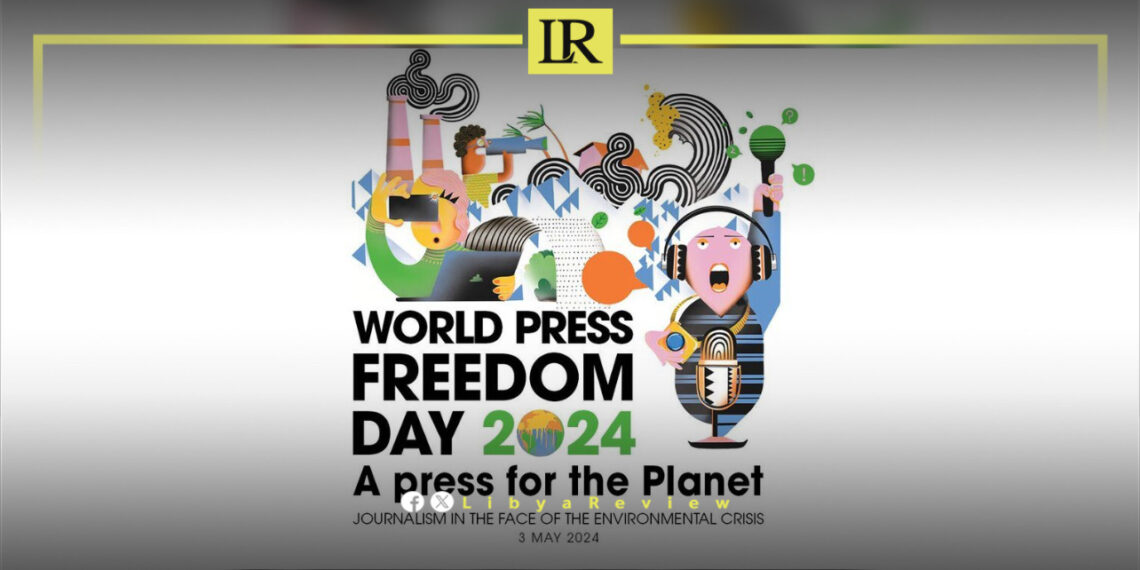On World Press Day, the United Nations Support Mission in Libya (UNSMIL) celebrated the indispensable contributions of journalists in advancing freedom of expression, democratic principles, social cohesion, and transparency. This year, in alignment with the UN Secretary-General’s message, UNSMIL called upon media practitioners to spotlight the ramifications of climate change on global populations.
Reflecting on Libya’s vast natural landscapes and diverse ecosystems, UNSMIL recognised the country’s confronting environmental hurdles. Issues such as desertification, escalating water scarcity, and ecosystem degradation demanded extensive media coverage. The aftermath of Storm Daniel in September underscored the urgency of reporting on these challenges, elucidating their profound impact on communities and the nation’s future, and holding the accountable parties responsible.
UNSMIL acknowledged the adverse conditions within Libya’s political and security landscape, hindering journalists’ freedom to operate effectively. Establishing a conducive environment safeguarding journalists’ safety and ensuring their independence emerged as imperative for fulfilling their pivotal roles as societal watchdogs and catalysts for positive transformation.
While paying tribute to the journalists who lost their lives during Libya’s tumultuous conflicts, UNSMIL urged media professionals to uphold rigorous ethical and professional standards. This encompassed actively combating biased reporting, fake news, disinformation, misinformation, and hate speech.
UNSMIL firmly asserted that a free and professional press remained indispensable for Libya’s journey towards peace, stability, and the establishment of legitimate institutions.
In May 2022, widow of a British-based journalist who was killed in Libya in 2011 has accused South Africa of withholding crucial information about her husband’s death that could help in efforts to locate his body.
His widow, Penny Sukhraj-Hammerl, found out on 19 May 2011 her husband was dead after 44 days of being led to believe that he was still alive in captivity along with other journalists.
Anton Hammerl, 41, was shot in in a remote desert location near Brega in 5 April 2011 while covering the conflict between pro-regime and anti-Gaddafi forces.
His widow called on Libya’s outgoing Government of National Unity (GNU) to take action to help find Hammerl’s body and explain his death. But the GNU didn’t provide support for her.
Hammerl was a dual citizen of Austria and South Africa.
At issue is the circumstances of the return of Hammerl’s passport to his widow by South Africa in 2016. Sukhraj-Hammerl believes the circumstances of how his passport came to be in South Africa may help the family find his body.
“It was posted to my office in mid-2016. I was quite overwhelmed as I didn’t expect it,” she said, explaining that her husband would have been carrying his ID document at the time of his death in a photographer’s waist pouch he wore.


